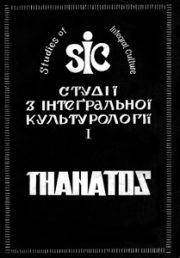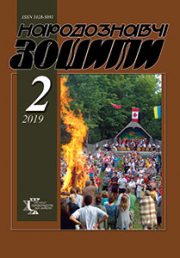The Ethnology Notebooks. 2019, № 6 (150), 1499—1509
UDK372.858(477.85/87)
DOI https://doi.org/10.15407/nz2019.06.1499>
VOLYTSKA-ZUBKO Iryna
ORCID ID: https://orcid.org/0000-0002-6147-5304
Ph.D in Art Studies,
Senior Researcher at the Art
Studies Department,
The Institute of Ethnology of the National
Academy of Sciences of Ukraine.
Honored artist of Ukraine,
Member of the National Union of
theatre artists of Ukraine,
15 Svobody Avenue, 79000, Lviv, Ukraine
e-mail: iryna.volytska@gmail.com
Abstract. The article dwell with the little articulated in our national theatre studies issue of the general educational level of the cast of the theatre of Lviv society «Ruska besida» of the late 19th — early 20th centuries.
Problem statement.The peculiarity of the functioning of the theater in the society «Ruska besida» was that it was joined by talented youth who usually had no professional education and studied acting skills only in the process of stage practice.
The purpose of the study is to find out the cultural background which the Ukrainian Galician artists began their professional activities with, and to what extent they were prepared to perform the creative tasks that they were facing in a theater focused on the Western European cultural space.
Method. This research has operated with the typological approach that could focus on the structure and specificity of the education system in Galacia of that time, and helped to highlight the qualification index of this education that was in line with Western European standards.
Results. Most of the theater’s educational backgrounds were mainly secondary schools: classical gymnasiums and teacher’s seminars.These schools laid the solid foundations of humanitarian knowledge, formed valuable and ideological orientations, prepared young people for a variety of professional activities, in particular made them capable of working in the field of performed arts.
Conclusions. The delving into the research issues gives reason to rethink stereotypical ideas about the general cultural level of Western Ukrainian theater figures. The theater’s artists education was based mainly on secondary schools: classical gymnasiums and teacher’s seminary. By its specificity and quality, this education conformed to the Central European standards of that time.
Keywords: acting, educational system, Austrian Galicia, the late 19th — early 20th centuries, theater of the society «Ruska besida».
Received 21.11.2019
REFERENCES
Franko, I. (1981). The Rusky Theater. In I. Franko. Collection of works in 50 volumes (Vol. 29, pp. 96—112). Kyiv: Naukova dumka [in Ukrainian].
Charnetskyi, S. (1934). Essay on the history of Ukrainian theater in Galicia. Lviv [in Ukrainian].
The Central State Historical Archive in Lviv. F. 514. Op. 1. Od.zb. 69. Pp. 1—38 [in Ukrainian].
Medvedyk, P. (1993). Figures in the Ukrainian Musical Culture (Materials to the bio-bibliographical dictionary). NTSH Notes, 226, 370—455 [in Ukrainian].
Kurbas, L. (2001). Philosophy of theater. Kyiv: Osnovy [in Ukrainian].
Franko, I. (1986). Our public schools and their needs. In I. Franko. Collection of works in 50 volumes (Vol. 46:2, pp. 108—115). Kyiv: Naukova dumka [in Ukrainian].
Pakholkiv, S. (2014). The Ukrainian Intelligentsia in Habsburg Galicia: Enlightened Layers and the Emancipation of the Nation. Lviv: Pyramida [in Ukrainian].
Medvedyk, P. (1989). Kateryna Rubchakova. Kyiv: Mystetstvo [in Ukrainian].
Franko, I. (1985). Secondary schools in Galicia in the years 1875—1883. In I. Franko. Collection of works in 50 volumes (Vol. 46:1, pp. 418—437). Kyiv:Naukova dumka [in Ukrainian].
Grytsak, Y. (2006). A prophet in his homeland: Franco and his community (1856—1886). Kyiv: Krytyka [in Ukrainian].
Temnitsky, V. (1900). Something about Ukrainian high schools. Young Ukraine: Journal of Ukrainian youth, 3, 101—107 [in Ukrainian].
Olesnitskyi, E. (1935). Pages from my life (Vol. 1). Lviv: Dilo Publishing House [in Ukrainian].
Vodianyi, Kh., & Vasylko, V. (Ed.). (1968). Memoirs of Les Kurbas (1911—1913). In Vasylko V. Les Kurbas: Memoirs of contemporaries (Pp. 51—68). Kyiv: Mystetstvo [in Ukrainian].
Ludkevych, O. (1900). Our singers and the national affair. Young Ukraine: Journal of Ukrainian youth, 4, 133—138 [in Ukrainian].
Kyrchiv, R. (2009). National Artist Ivan Rubchak. Uzhhorod: Grazhda [in Ukrainian].
Lozynskyi, M. (1906). Ukrainian School in Galicia. Nova Gromada, 10, 96—112 [in Ukrainian].
Barvinskyi, O. (1910). Selection of Ukrainian-Russian Literature for Years 3 and 4 of Teacher Seminars. Lviv [in Ukrainian].
Bogachevska-Khomyak, M. (1995). White on White: Women in Public Life in Ukraine, 1884—1939. Kyiv: Lybid [in Ukrainian].





